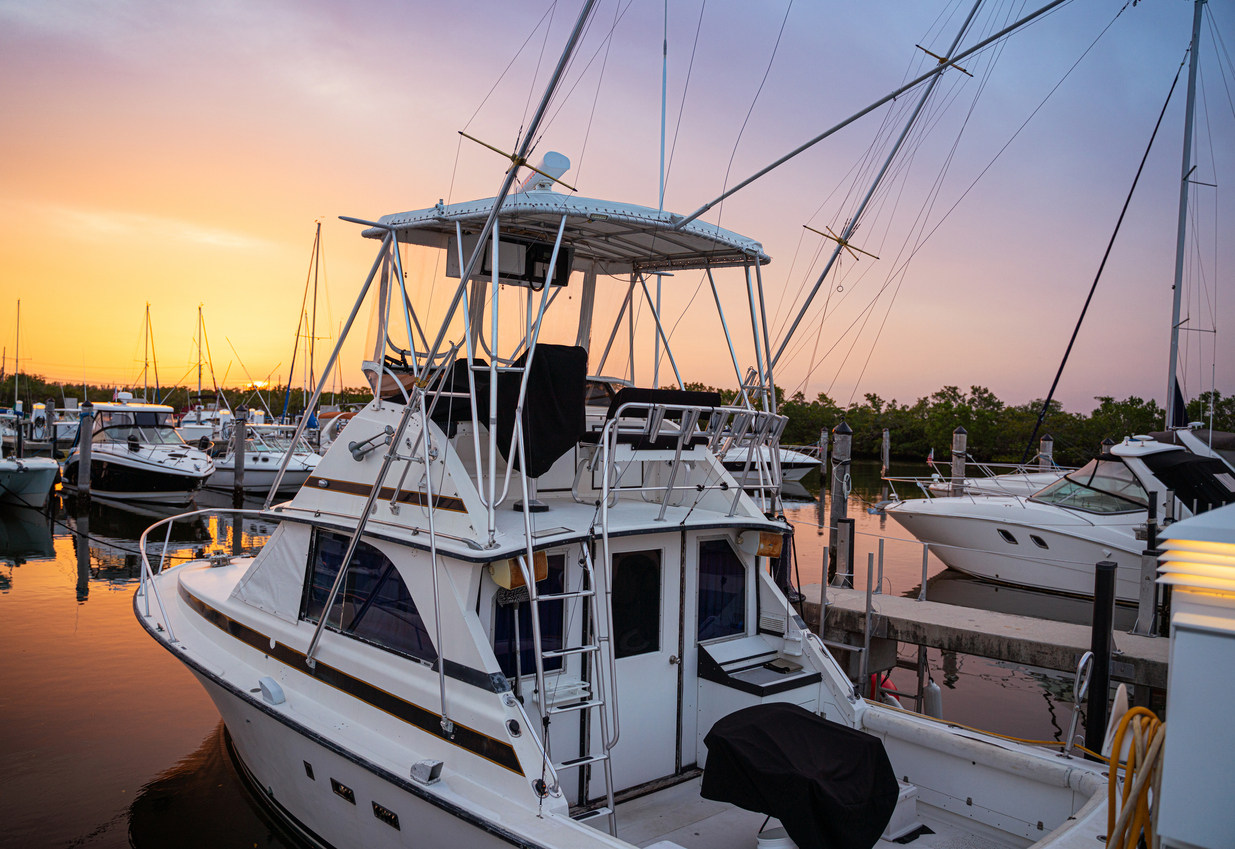
Managing Common Marina Property Liabilities
May 21, 2020
For boat owners, marinas offer a wide range of services, not to mention outdoor enjoyment. For marina operators, however, these facilities represent a diverse collection of risk exposures. Close proximity to water bodies and services like fueling, maintenance, and electrical delivery for vessels can be a recipe for serious marina property damage and injury if these risks are not acknowledged. For marina and yacht club facility owners, risk management is a critical component of marina operations. Understanding common marina property liabilities and marina insurance requirements are the keys to protecting facility assets, guests, and personnel.
Risk Exposures in Marinas
During the warmer months of the year, marinas and yacht clubs can be hives of activity, with boaters entering and leaving docks, fueling up their vessels, or engaging in activities on marina grounds. Many marinas also provide temporary or long-term mooring, maintenance and repair services, and vessel storage options to their clients, even after the traditional boating season winds to a close with the approach of cold weather.
With so many people and so many operations taking place, risk exposures in marinas are many. Common marina risks include:
- Fires from fueling operations or electrical faults on vessels.
- Water and premises safety hazards, including slip and fall injuries, boaters overboard, or drowning incidents.
- Electrical hazards, including a phenomenon known as “electric shock drowning” (ESD) where swimmers are exposed to electrical currents from faulty equipment that can charge the waters in and around marina properties.
- Pollution and environmental hazards, often from fueling or maintenance operations.
- Crushing hazards as boats are moved into and out of dry storage racks.
- Collisions between vessels entering or exiting marinas.
Marina insurance requirements can vary, with marina operators being required to have coverages for a range of liabilities such as injuries, property damage or loss, pollution spills, and marina operators protection and indemnity.
Managing Risk in Marina/Yacht Club Operations
Risk management is a crucial aspect in the safe and productive operation of marinas and boatyards. In addition to marina insurance requirements and options, marina owners must adopt a wide array of practices to help protect facility assets, guests, and employees from liabilities.
Drowning hazards loom large over many marina operations. If a guest or employee were to slip off a dock or boat deck, he or she could be at risk of drowning. Electrical services such as dockside “shore power” equipment, electrical transmission lines, and moored vessels may leak electrical currents into the water. Swimmers exposed to these invisible currents may become paralyzed, resulting in ESD incidents. People swimming near vessels are also subject to submerged objects as well as propeller or boat strikes, often leading to severe injury or death. To protect against drowning risks, marina owners have two major options:
- Adopting “No Swimming” policies on marina properties, with appropriate warning signs posted conspicuously on the premises.
- Ensuring safety and rescue equipment is present and in good working condition. Safety ladders should be maintained at regular intervals, allowing overboard boaters to egress from the water. Life rings are another good option, and may be mandated by regulatory agencies as well as marina insurance requirements.
Slip and Fall Hazards
Slip and fall or tripping hazards are common on these properties, and may occur as the result of electrical or fueling equipment (cables and hoses) in walkway areas, slippery docks and decking, exposed cleats, mooring lines, and poorly-maintained dock surfaces. Marina owners should mark any potential tripping hazards with signs or eliminate these hazards wherever possible.
Pollution
Fueling services are a valuable addition to the range of options provided to guests. Unfortunately, pollution leaks and fires are a constant hazard in marinas. Equipment operators should be trained on the safe use of equipment as well as emergency procedures to undertake if a fire or spill should occur.
Safety Training
Safety training is an integral part of risk management. Regular safety training on operations and emergency responses is critical for employees of marinas; many marinas are now offering similar training seminars to boating clients and their guests. Knowledge of hazards and what to do if an emergency occurs helps make marinas safer places to both work and visit.
Review your Insurance Policy
Finally, marina owners should carefully and regularly evaluate their existing marina insurance requirements and policies. This gives owners an opportunity to discover coverage gaps or potential problems and to purchase policies that offer more comprehensive protection. Insurance is the foundation of any risk management strategy, and its value cannot be overstated.
About Merrimac Marine Insurance
At Merrimac Marine, we are dedicated to providing insurance for the marine industry to protect your clients’ business and assets. For more information about our products and programs, contact our specialists today at (800) 681-1998.
